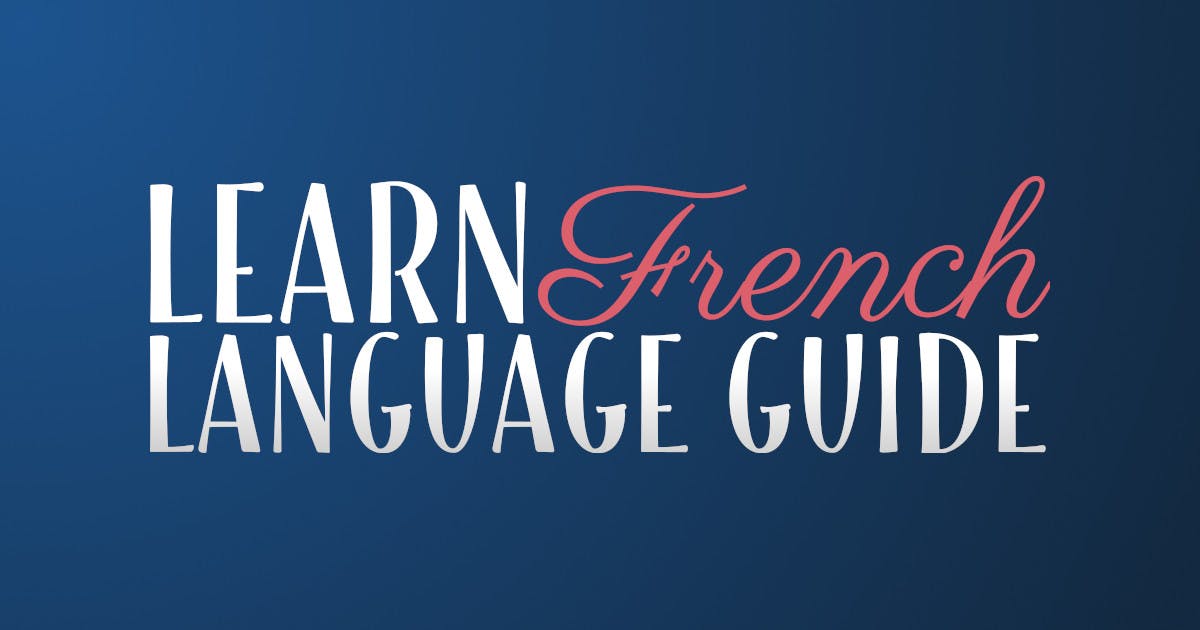French Verb Tenses Explained (Beginner's Guide)
We know that the English language uses "tenses" for verbs to indicate when an action takes place, and the same is true for French.
In the present tense, the action is taking place now, in the future tense, it will take place and in the past tense, it already took place.
In both English and French, there are many complicated tenses, many of which we don't even use in everyday speech. So for these French lessons, we will only learn the most common tenses: the present, future and past.
You don't even need to know the French names for theses tenses, you only need to know at which time the action is taking place.
French verbs have different endings to indicate the tense of the verb. Those endings depend on the "type" of verb.
There are two types of verbs in French: regular and irregular verbs.
Regular verbs always have the same endings, whereas irregular verbs have their own unique endings.
Of the regular there are three kinds:
- "er" verbs
- "ir" verbs
- "re" verbs
-ER verbs
ALL regular "er" verbs will have the same endings that the verb Parler (to speak) has.
| Present Tense | Future Tense | Past Tense |
|---|---|---|
| Je parle | Je parlerai | J'ai parlé |
| Tu parles | Tu parleras | Tu as parlé |
| Il/Elle parle | Il/Elle parlera | Il/Elle a parlé |
| Nous parlons | Nous parlerons | Nous avons parlé |
| Vous parlez | Vous parlerez | Vous avez parlé |
| Ils/Elles parlent | Ils/Elles parleront | Ils/Elles ont parlé |
-IR verbs
ALL regular "ir" verbs will have the same endings that the verb Finir (to finish) has.
| Present Tense | Future Tense | Past Tense |
|---|---|---|
| Je finis | Je finirai | J'ai fini |
| Tu finis | Tu finiras | Tu as fini |
| Il/Elle finit | Il/Elle finira | Il/Elle a fini |
| Nous finissons | Nous finirons | Nous avons fini |
| Vous finissez | Vous finirez | Vous avez fini |
| Ils/Elles finissent | Ils/Elles finiront | Ils/Elles ont fini |
-RE verbs
ALL regular "re" verbs will have the same endings that the verb Mettre (to put) has.
| Present Tense | Future Tense | Past Tense |
|---|---|---|
| Je mets | Je mettrai | J'ai mis |
| Tu mets | Tu mettras | Tu as mis |
| Il/Elle met | Il/Elle mettra | Il/Elle a mis |
| Nous mettons | Nous mettrons | Nous avons mis |
| Vous mettez | Vous mettrez | Vous avez mis |
| Ils/Elles mettent | Ils/Elles mettront | Ils/Elles ont mis |
Save these tables to use as a reference as we move forward in speaking French.
You will notice consistency in the endings for the verbs, and once we start discussing pronunciation you will see that, at least in spoken French, there is not as much to remember as it first appears.
Many letters are sounded the same, and some letters are not pronounced at all. Again, don't worry about pronunciation at this point. When we start working with pronunciation guides, once you get used to one sound, you will see it used over and over. The other type of verb is the irregular verb.
There are many irregular verbs, but only a few that are used very consistently and therefore need to be memorized. You noticed in the regular verbs that the "stem" of the verb always stayed the same.
That is, there is always a "par" in any form of parler, and always an "fin" in any form of finir.
Irregular verbs may actually change the stem in forming the different tenses, so it is difficult to form any rules about them. For the moment, we will just memorize the two most important irregular verbs, etre (to be) and avoir (to have).
The tenses of Etre:
| Present Tense | Future Tense | Past Tense |
|---|---|---|
| Je suis | Je serai | J'ai été |
| Tu es | Tu seras | Tu as été |
| Il/Elle est | Il/Elle sera | Il/Elle a été |
| Nous sommes | Nous serons | Nous avons été |
| Vous êtes | Vous serez | Vous avez été |
| Ils/Elles sont | Ils/Elles seront | Ils/Elles ont été |
The tenses of "Avoir"
| Present Tense | Future Tense | Past Tense |
|---|---|---|
| J'ai | J'aurai | J'ai eu |
| Tu as | Tu auras | Tu as eu |
| Il/Elle a | Il/Elle aura | Il/Elle a eu |
| Nous avons | Nous aurons | Nous avons eu |
| Vous avez | Vous aurez | Vous avez eu |
| Ils/Elles ont | Ils/Elles auront | Ils/Elles ont eu |
As you can see, both etre and avoir change quite a bit; sometimes etre starts with an "s", sometimes with an "e"; sometimes avoir starts with an "a, sometimes with an "o". These are two important verbs that just have to be memorized.

SUBSCRIBE: